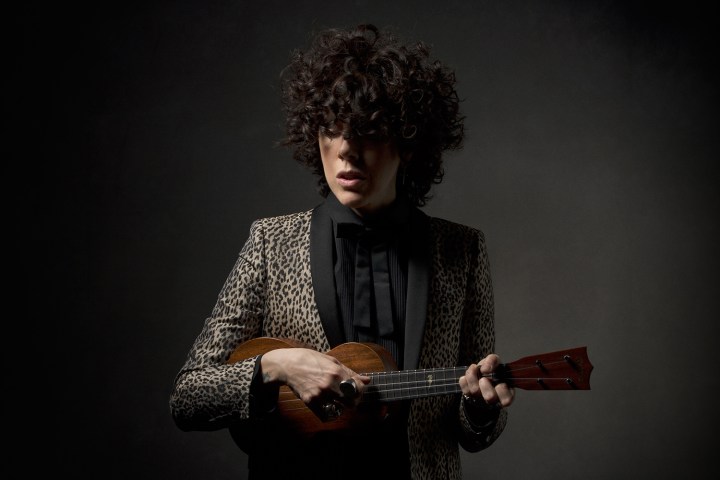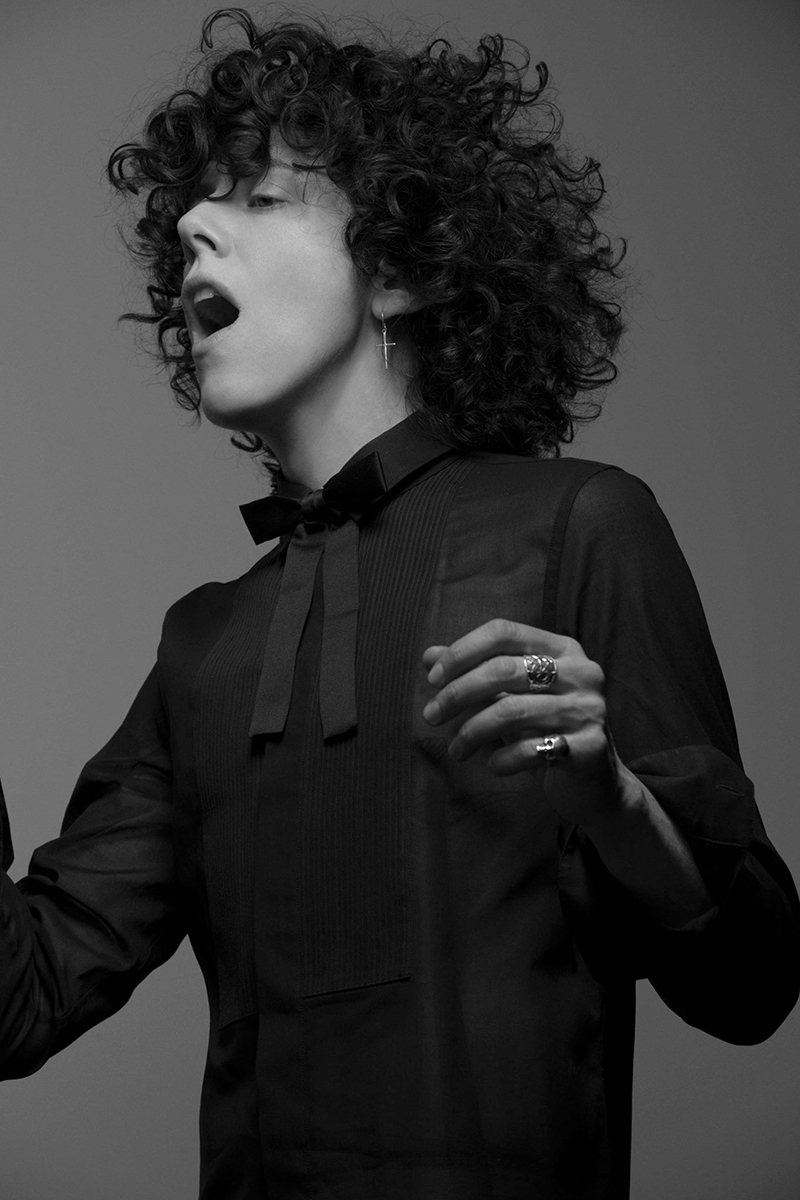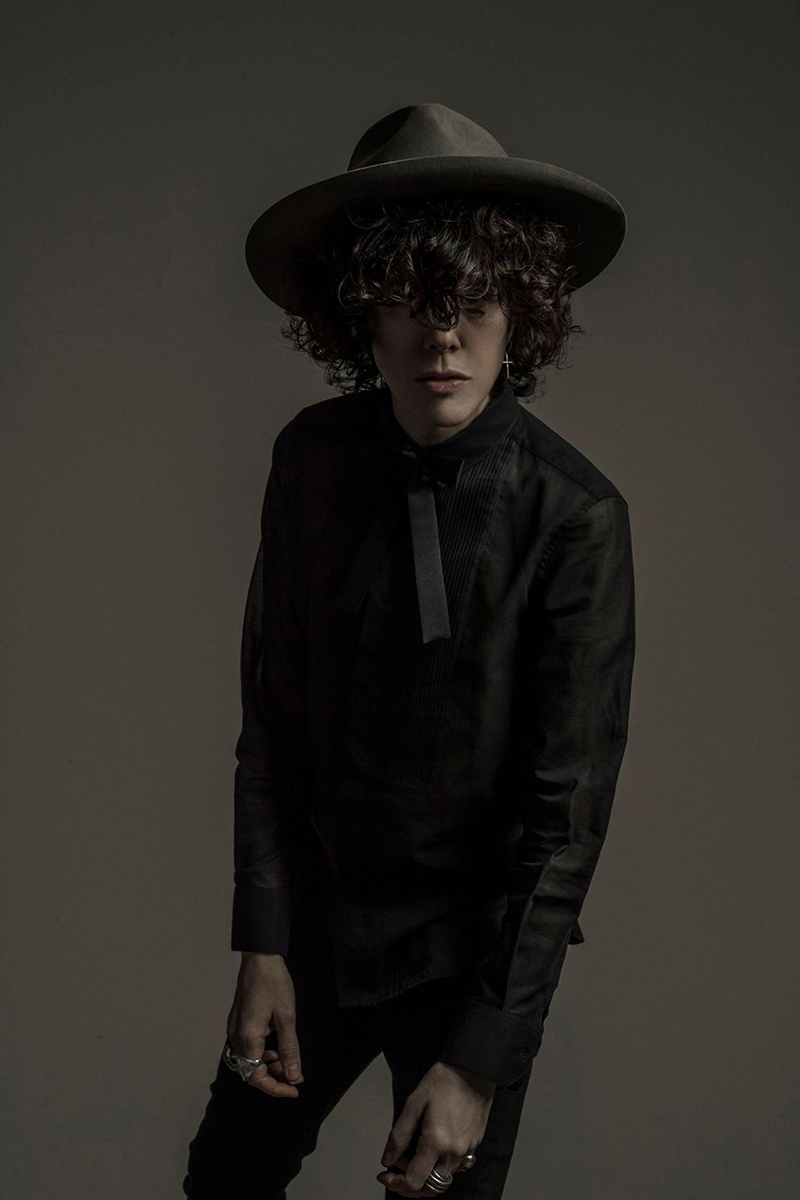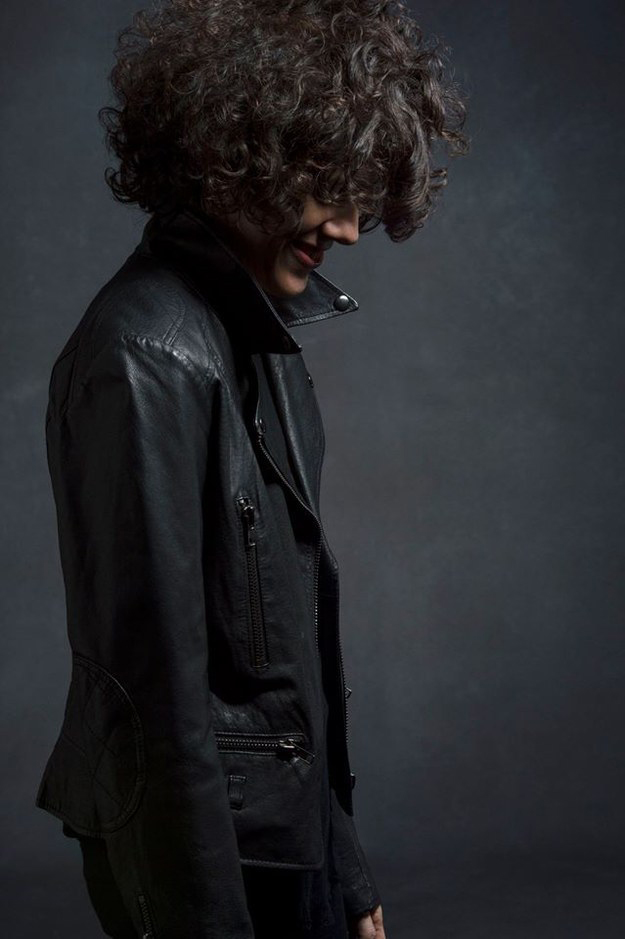
“Good songs have a leeway to them. They respond to being done in different versions.”
Identity is everything to recording artists. If that gets diluted in any way, musicians feel a clear disconnect has occurred between their intended message and how it’s being conveyed to the listener.
In essence, that’s exactly what happened to indie singer/songwriter LP (who’s also written hits for heavy hitters like Rihanna and Christina Aguilera) when she dipped her toes into the big-label waters a few years ago. An artistic push-pull with the production style foisted on her 2014 album, Forever for Now left her feeling uneasy. “I got to the point where I realized things had gotten out of hand, and I didn’t feel close to the music anymore,” LP admitted to Digital Trends. “It was very frustrating.”
Now back on her own, LP’s true nature is on full display in the deep grooves of her new Death Valley EP, now available digitally from Vagrant. Both her personal and professional strife are at the EP’s forefront with the beg-for-mercy tone of the gospel-tinged Muddy Waters, the whistling spaghetti-western cool of Lost on You, and the gnarly F-you frustration bursting from Other People.
Before heading out on the road to open a number of dates for iconic Roxy Music frontman Bryan Ferry, LP (full name: Laura Pergolizzi) called Digital Trends to discuss how she was able to recapture her sound on Death Valley, how it felt to get a song placed in the new season of Orange Is the New Black, and the mutual perils and benefits of streaming.
Digital Trends: To me, Death Valley sounds a lot more like who you are as an artist. That must be quite liberating.
LP: Yeah! Without explaining things about my last album in a “They did this to me!” bitter kind of way, and instead of going into the minutiae and swinging the bad-juju net (chuckles), you know… shit happens, man. I played with fire and got a little burnt, but there’s some really good shit on that record too.
But this EP feels close to my heart. I got a lot of good songs not only out of that label situation, but more from my romantic situation.
It’s gut-wrenching to hear, to say the least.
Ah, yeah, yeah. It was weird. It was one of those things where, when your work life and your romantic life are both shitting the bed, it’s like, “Fuck!” (chuckles)
I guess it all ties into that idea where you sometimes need a certain level of pain to create a certain kind of art. And as listeners, we connect with that pain directly, especially when watching the Live Sessions versions of songs like Muddy Waters on YouTube.
Am I cool with streaming? Well, my retirement fund isn’t.
Totally. To me, rock and roll is not a perfect science. It’s not meant to be metronomed, you know what I mean? Finely trained musicians would probably beg to differ: “Please, please use a metronome, for the love of Christ!”
Your kind of music has got to be real, though. You could metronome the feel right out of a song like Other People.
Yeah, yeah, exactly! And sometimes it’s a challenge, you know? I’m not in a band, though I hire people to be in my band, and I become friends with them. I don’t have the liberty to practice as much as I’d like to, and it takes time to get these songs down properly, when it’s live.
I don’t mean to downplay it — I have the closest thing I’ve ever had to a band feel now. I look at that live session of Muddy Waters and I think, “Oh shit, it’s so slow,” but it got a lot of views [over 1 million and counting, as of post time], and people seem to dig it.
What’s cool is these songs have some leeway, and they respond to being done in a few different versions. I think that’s what good songs can do.
And speaking of Muddy Waters, how powerful was it to hear it at the super-intense end of Season 4 of Orange Is the New Black?
I haven’t gotten to it yet! Unfortunately, I’ve read some comments that have spoiled it for me, but I don’t really mind. I’ll watch previews that spoil movies and things.
I know those characters. I’m probably three-quarters of the way through the last season [i.e., Season 3], and I’m excited to see it when I get the time. There are so many programs out there, so it’s an honor to have your music chosen for anything.
You must relate to a lot of characters on that show.
Oh, totally. I mean, I have a wide range of an audience, but I feel like this is definitely a part of my audience, for sure.
By the time you see that Season 4 episode for yourself, you’ll feel its emotional impact in the moment.
It’s heavy.
What’s also interesting is, some of the inflections in the way you sing Lost on You remind me of the way Lolly Whitehill, the character Lori Petty plays on Orange, speaks.
Oh yeah? Nice. Cool.
Lost on You is also noted as being your cool spaghetti western track. That was your intent in creating it, right?
Rock and roll is not a perfect science. It’s not meant to be metronomed.
(laughs) Well, yeah, that’s always been a thing I’ve wanted to do. You have to understand, the last record [Forever for Now] started with these kinds of notions. The first two songs I did for that record were Into the Wild and Tokyo Sunrise, so I was really on that tip.
That’s the biggest thing I got sad about. I’m a songwriter for other people, as you know. And when big-label people see that you’re writing pop songs for other people, they want you to do that for yourself. There is a pop element to what I do, but I’m going for a deeper, more left-of-center vibe. That’s the sound I’ve always been looking for. To be honest, the last album got put into the rock blender, and that took off some of the edges.
I hear you. I’d much rather hear the John Lennon/Joni Mitchell vibe in your work — that character of you as you when I listen to the record, rather than what somebody else feels you should sound like.
Yeah, and that’s also for good or for evil, you know? I’ve heard from some people who think Death Valley sounds like my really old stuff — and it does. Nothing is new under the sun, but the combinations are really what change everything. When all of the elements come together — your life, your influences, whatever it is — that’s what makes it truly unique, in any artist’s life. It’s genetically engineered. So if somebody puts their own thing into the mix, it mutates what’s supposed to be happening. And that happens on a daily basis, at all labels.
You, as an artist, have to fight all the time to keep your identity intact.
I personally know people who have died fighting, and you’ll never hear of them. I’ve gone through stages of playing the game, and then not playing the game. This time, I didn’t even enter the game at all. (chuckles)
And much like you said, you can write more pop-oriented material for people like Rihanna and Christina Aguilera, and then do your own thing over here.
Right, exactly. And that can be confusing sometimes. Even yesterday, I was writing a song that I think was for me, but at the end of the session, I was like, “Fuck — is this actually for me, or is it too pop?”
But I’ll take that problem over anything else. I’d rather be prolific and see what happens, and keep it going. I always tell people, “If you write a hit song, you have to write another hit song anyway. If you write a shit song, you still have to write another song too.” It doesn’t matter. You could have written the biggest hit song, and all eyes are looking to you to write another one. It’s not a thankless job; it’s just an endless job.
It’s always, “What have you done for me lately?”
That’s in any writing game, obviously.
I see some parallels with Sia, where you two wear different hats depending on what you want to do with the songs you write. Then you have to decide if you want to do them yourself, or give them to other artists.
I think once you get over the enormity of the idea that it doesn’t stop, and there is no rest (chuckles) — once you get over that, it’s very freeing. More and more, I treat it like a job — not an onerous job, but like real work; not the boring, banal kind of stuff.
You have multi-millions of listens to your music on Spotify. Are you cool with people streaming your music?
It’s truly unjust that paying for music is not honored as much as it should be.
Well, I mean, my retirement fund isn’t. (both laugh) You go on Spotify for five minutes, and it makes your head spin. You feel like, “I shouldn’t even bother.” (chuckles) But I want as many people to hear what I do as possible.
I do think it’s truly unjust that paying for music is not honored as much as it should be. I can’t get over it sometimes. A visual artist, a painter, gets paid. I mean, I don’t know the ins and outs of that business, but I have to assume that when someone paints a fucking painting, no one walks out of there with it for nothing.
You’re not going into The Louvre saying, “I’m going to walk out with this painting. You don’t mind, do you?”
You’re not even allowed to take a picture of it, you know? It’s odd to me. It’s one of those things — we live in the fucking computer age, and that’s the least of our worries about what happens on the internet sometimes.
Who are your personal songwriting icons?
I’m a huge Joni Mitchell fan, like you said. And I like Billy Joel. He has the right amount of drama and rock and roll, in a way. It was like, I don’t know… I was turned on by his lyrics.
I think he gets a bad rap sometimes. He’s a great songwriter.
He is. When people put him and Elton John together — I know they’re both geniuses, but sometimes I’m like, “Listen — Billy Joel wrote all the lyrics for his shit!”
I also love The Beatles and The [Rolling] Stones. I said this the other day — The Beatles taught me how to love, and The Stones taught me how to fuck. I’ve never not loved those two bands. I attribute so much to them.
Listening to The Stones’ Some Girls (1978) on record just feels right. As a kid, I didn’t really do records, but I’ve come to a new place where I collect records now. I never had before. It’s such a revelation.
And then there’s Nirvana, and Kurt Cobain — the combination of his ability to be so rock, and to also convey such deeply personal poetic themes.
I was lucky enough to see Nirvana in New York the week Nevermind came out [in September 1991].
Oh, man! I wish I’d have been able to go to a show before that band hit. Have you ever gone online and seen old videos of Guns N’ Roses at CBGB [from October 30, 1987]? There was this weird thing with Appetite for Destruction where it was out for like, 11 months before anything happened with it, but they knew what they had, for sure.
It was interesting seeing them being interviewed as young guys, thinking and drinking at this table. Guns N’ Roses just cleaned the house of the ’80s hair-metal bands, and then Nirvana cleaned them out, in the end. (chuckles)








